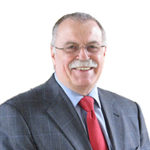I have been involved in the capital markets since the 1970s, as an advisor, portfolio manager, and investor. Today, I am a teacher, director, and ordained Deacon with the Anglican (Episcopalian) Church. I also hover over my own portfolio as I (finally) complete a Doctorate in Practical Theology—in self-isolation!
During my time, there have been three major market corrections. These include:
- The crash of 1987: Known as Black Monday, this market crash was driven by massive computer-driven trading following a period of significant changes in international monetary policy.
- The dot-com bust of 1999: This was triggered by excessive trading in internet-related companies.
- The recession that began in 2008: This followed deregulation of the financial industry and a failure of derivative markets.
- The crash of 2020: This has been the result over widespread fears of a massive slowdown in global economic activity.
As if worrying about COVID-19 were not enough, these wrenchingly volatile markets can be stultifying: causing us to lose enthusiasm about our investment decisions. For some, hope is hard to find in the midst of it all.
At a practical level, this volatility provides a profound lesson in how it all works. At the macro level, investors and analysts are looking at the marketplace and regulatory forces that shape the environment in which publicly traded enterprises make their decisions. At the micro level, investors and analysts are in a virtually constant state of determining the capital strength of companies, the prospect and certainty of future earnings, and the ‘discount’ or return demanded by them for investing in the shares or bonds of the company. Influenced by their determination of systemic factors, their non-systematic, or company-specific metrics, investors and analysts make a decision about value–the ‘present value’ decision. When all the variables are being bashed around daily, even hourly, we begin to understand why volatility spikes in such circumstances as we are experiencing right now. This tells us why there is a saying that markets are built on walls of worry.
At a personal level, in times of deep inflection, we frequently find ourselves stuck. We have difficulty moving forward or back. Some call this a liminal space; we sense a need for transition to a new model of living, but we are bombarded by disorientating current ambiguity. This can be disquieting, even frightening.
Liminality can result in profound loneliness. Driven, in this case, by a financial shock, we may fear a loss of financial security. Beyond damage to our investment portfolios, we may fear a complete loss of income due to job loss. Self-isolation may trigger a fear of loss of closeness with family and friends.
Deep reflection, and perhaps a conversation with a counsellor/advisor will help. Increased reading and learning will also illuminate the path forward. This reflection, for some, will be enhanced by a conversation with a spiritual confidant.
There will be another side to this. The reflection process that we go through now will shape how we navigate the path to the other side, and perhaps how we will manage differently when we get there. We trust that this process of “refining fire” will lead us to the other side with a renewed sense of purpose and gratitude for the basic needs we often take for granted.

By Reverend Deacon Paul K. Bates, MTS, DPT (ABD), FCPA, FCMA, CMC
A Chartered Professional Accountant (FCPA), Fellow of the Society of Management Accountants (FCMA) and Certified Management Consultant (CMC), Paul’s career has spanned senior academic administration; business and divinity school lecturing; investor advocacy; capital markets regulation; investment dealer executive leadership with P&L accountability; expert witness and international consulting in the financial services sector. He is a former member of the council of Canada’s Social Sciences and Humanities Research Council (SSHRC). Paul holds a Master’s degree in Theological Studies from McMaster Divinity College, where he is pursuing a Doctor of Practical Theology.

